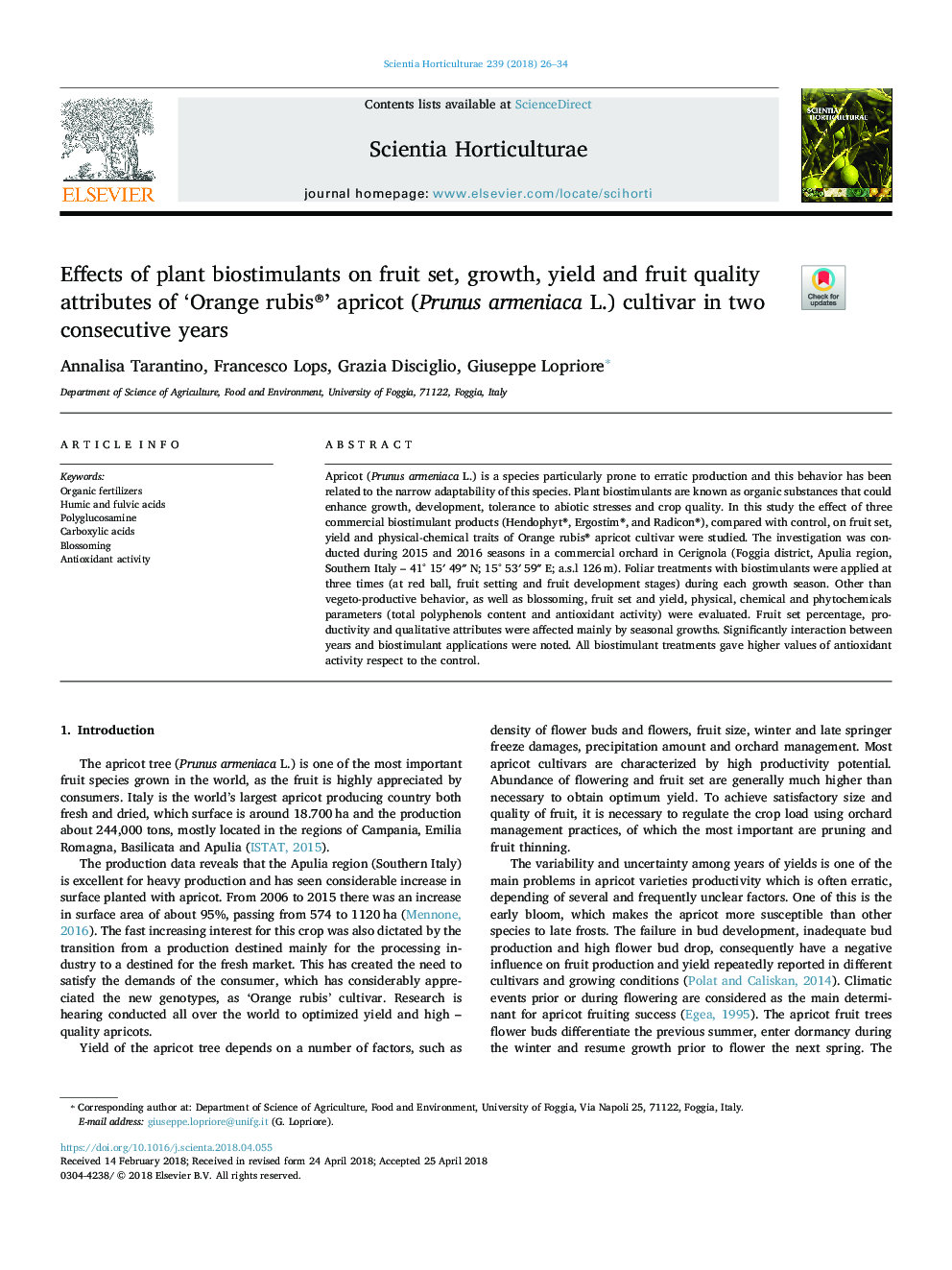| Article ID | Journal | Published Year | Pages | File Type |
|---|---|---|---|---|
| 8892448 | Scientia Horticulturae | 2018 | 9 Pages |
Abstract
Apricot (Prunus armeniaca L.) is a species particularly prone to erratic production and this behavior has been related to the narrow adaptability of this species. Plant biostimulants are known as organic substances that could enhance growth, development, tolerance to abiotic stresses and crop quality. In this study the effect of three commercial biostimulant products (Hendophyt®, Ergostim®, and Radicon®), compared with control, on fruit set, yield and physical-chemical traits of Orange rubis® apricot cultivar were studied. The investigation was conducted during 2015 and 2016 seasons in a commercial orchard in Cerignola (Foggia district, Apulia region, Southern Italy - 41° 15â² 49â³ N; 15° 53â² 59â³ E; a.s.l 126â¯m). Foliar treatments with biostimulants were applied at three times (at red ball, fruit setting and fruit development stages) during each growth season. Other than vegeto-productive behavior, as well as blossoming, fruit set and yield, physical, chemical and phytochemicals parameters (total polyphenols content and antioxidant activity) were evaluated. Fruit set percentage, productivity and qualitative attributes were affected mainly by seasonal growths. Significantly interaction between years and biostimulant applications were noted. All biostimulant treatments gave higher values of antioxidant activity respect to the control.
Keywords
Related Topics
Life Sciences
Agricultural and Biological Sciences
Horticulture
Authors
Annalisa Tarantino, Francesco Lops, Grazia Disciglio, Giuseppe Lopriore,
